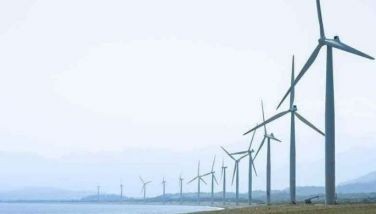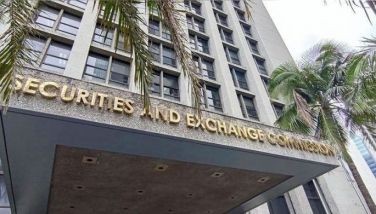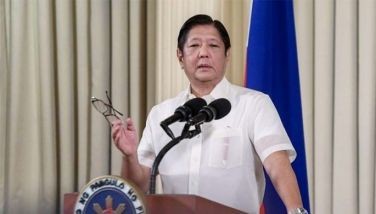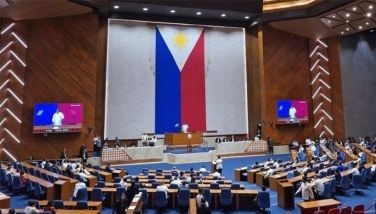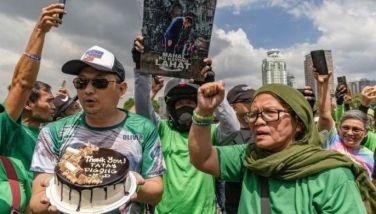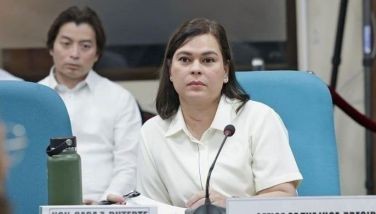Marcos Jr. urged to duplicate Duterte’s economic strategy
MANILA, Philippines — Presidential frontrunner Ferdinand Marcos Jr. may have to duplicate the economic policies that his administration will inherit from President Duterte to survive the twin trouble of a bloating deficit and rising debt.
In interviews with The STAR, economists said Marcos could just adopt most of the economic measures of the Duterte administration for policy continuity, especially on infrastructure buildup.
They pointed out that the Marcos campaign failed to disclose specific policies it will undertake, so it may be best to just emulate what the outgoing administration is doing.
Ateneo Center for Economic Research and Development associate director Ser Percival Peña-Reyes said the next administration should balance equity and efficiency in crafting its economic policies. He warned that the twin problem of a widening deficit and spiking debt would haunt the economy for the next few years.
“The Marcos administration cannot drastically change the course of the economy in its six-year term. It would be best for Marcos to just continue what Duterte has done,” Peña-Reyes said.
Marcos, who is leading the presidential race based on partial and unofficial counts, will inherit a fiscal space that may require him to raise taxes and cut spending.
The budget deficit widened by 22 percent to a record P1.67 trillion last year from P1.37 trillion in 2020, as the government had to increase its expenditures to finance its pandemic response.
The deficit, when measured against gross domestic product (GDP), elevated to 8.6 percent from 7.6 percent, and is only projected to revert to pre-pandemic level of 5.1 percent in 2024.
Similarly, the outstanding debt of the Philippines has spiraled to an all-time high of P12.68 trillion as of March. In 2021 the debt-to-GDP swelled to a 16-year high of 60.5 percent, exceeding the international standard of 60 percent observed by credit monitors and multilateral lenders.
Ateneo de Manila University economics professor Leonardo Lanzona, however, warned the next administration to think twice before consolidating its finances just to survive the fiscal dilemma. He said the government should target the billionaire class if it decides to increase taxes to raise additional revenues.
In an analysis, Oxfam said the Philippines could generate $6.3 billion annually by imposing a tax of two percent on wealth above $5 million, three percent on wealth beyond $50 million, and five percent on wealth over $1 billion.
Lanzona said Marcos should expect his political capital, where he banked on his majority win, to crumble if he chooses to tax the working class in his fiscal consolidation.
“We cannot sustain the current deficits, and at some point the government needs to make some trade-offs. I’m afraid they will take the side of the firms instead of the workers. In which case, we should expect more instability,” he said.
On policy continuity, both Peña-Reyes and Lanzona said the next administration should tweak the direction of the Build Build Build program initiated by the outgoing presidency. Peña-Reyes said new projects should focus on the demands of the new normal.
“Marcos should sustain the Duterte’s Build Build Build, but adjust it to the infrastructure needed in the new normal. With preference for open air environment, the program can focus on building bike lanes, pedestrian walks, open spaces, among others,” Peña-Reyes said.
On the other hand, Lanzona said Marcos can discard some Build Build Build projects that are no longer urgent and redirect resources to crucial expenses like debt payments.
“For instance, some of the funds for the Build Build Build programs may have to be scrapped in favor of more productive activities that can allow us to pay the debt,” Lanzona said.
Infrastructure spending hit P1.12 trillion or 5.8 percent of the GDP in 2021, and is scheduled to stay above five percent of the GDP until 2024.
- Latest
- Trending





















